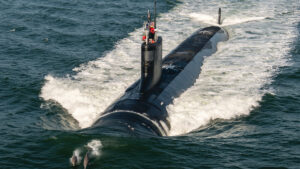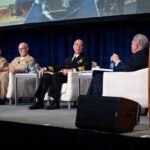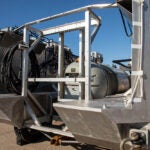
The Secretary of the Navy this week described some of the specific problems , like turbine generator deliveries, causing delays to Virginia-class (SSN) submarine production, but added that production is inching closer to 1.4 boats per year. Whereas the Navy seeks to generally buy two SSNs per year, shipbuilders General Dynamics Electric Boat [GD] and HII Newport News Shipbuilding [HII], have only been able to deliver between 1.2-1.3 vessels recently. Testifying before the Senate Armed Services Committee on Thursday, Navy Secretary…

 By
By 










